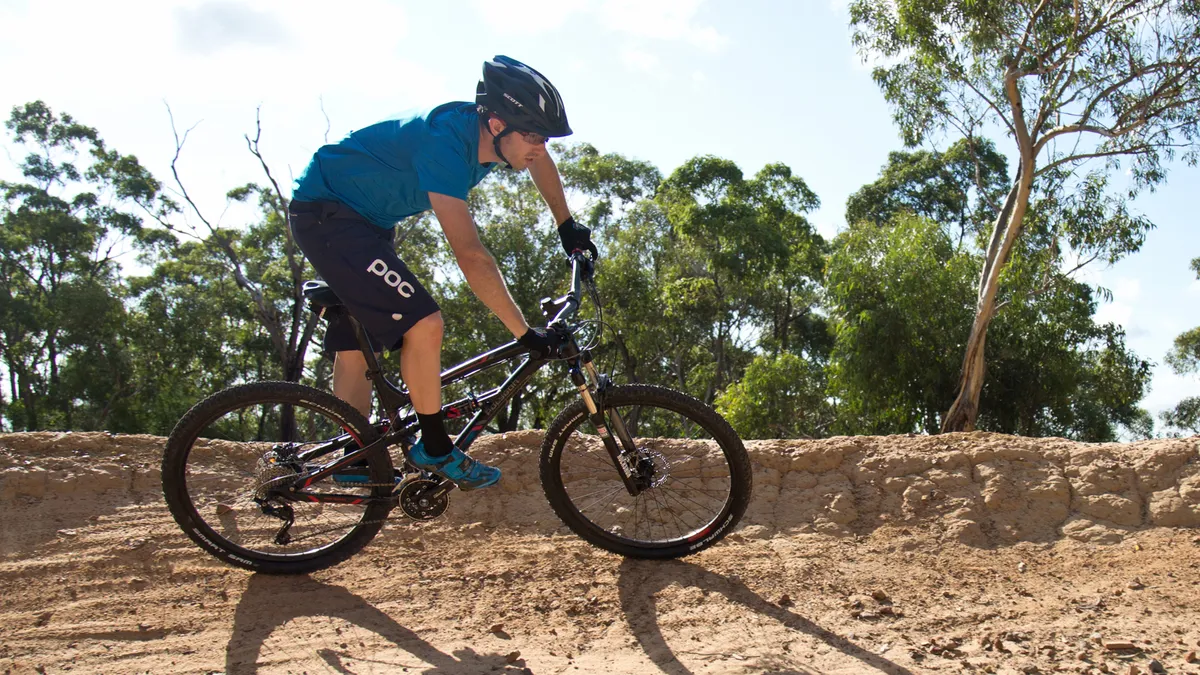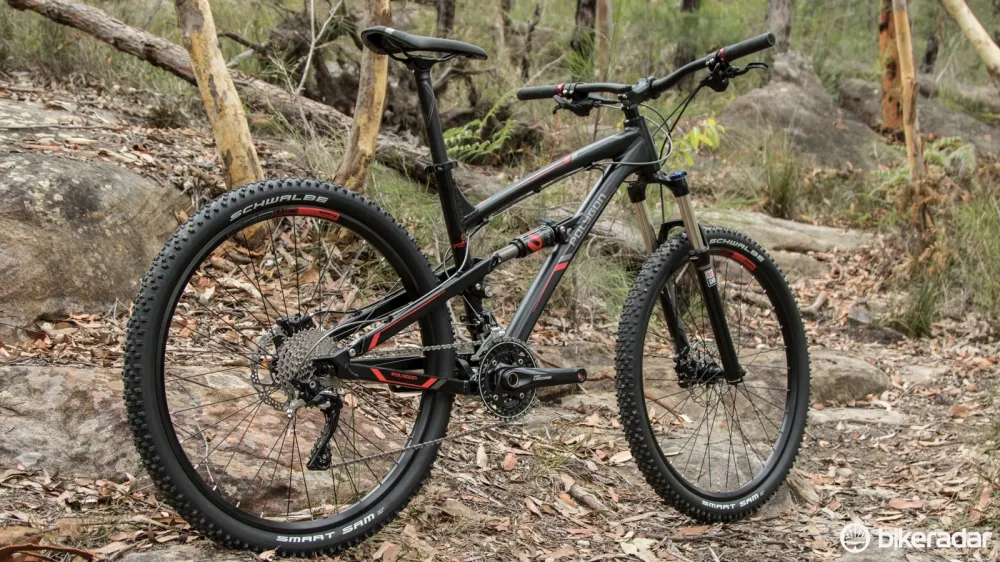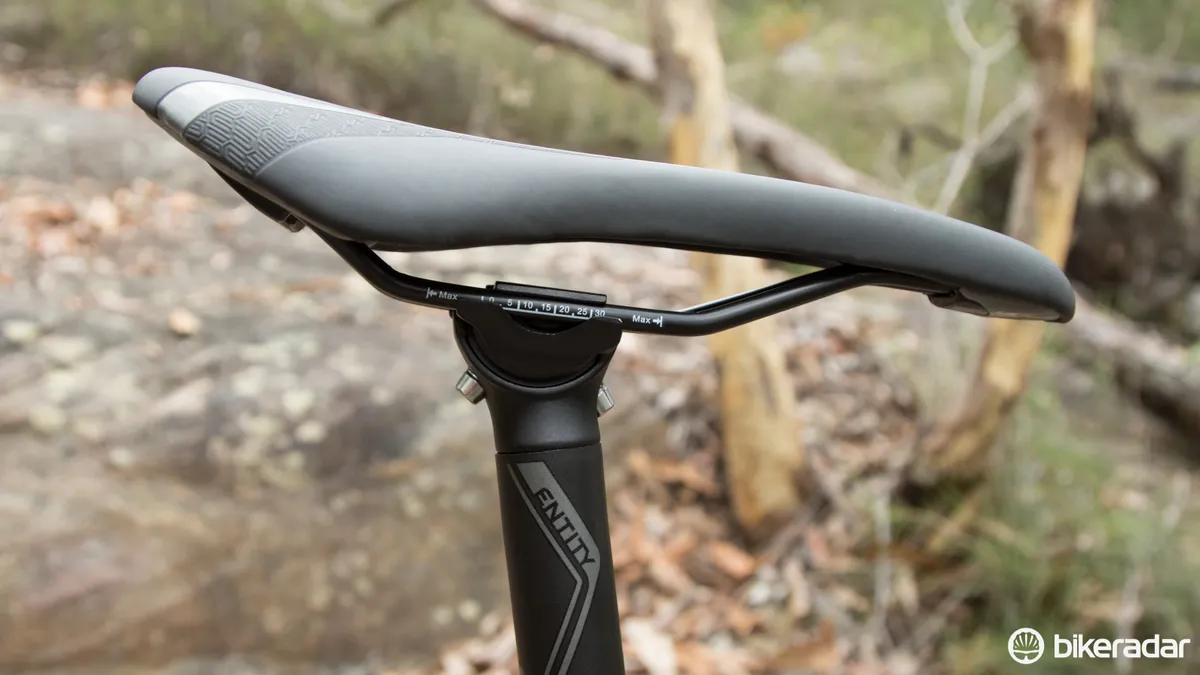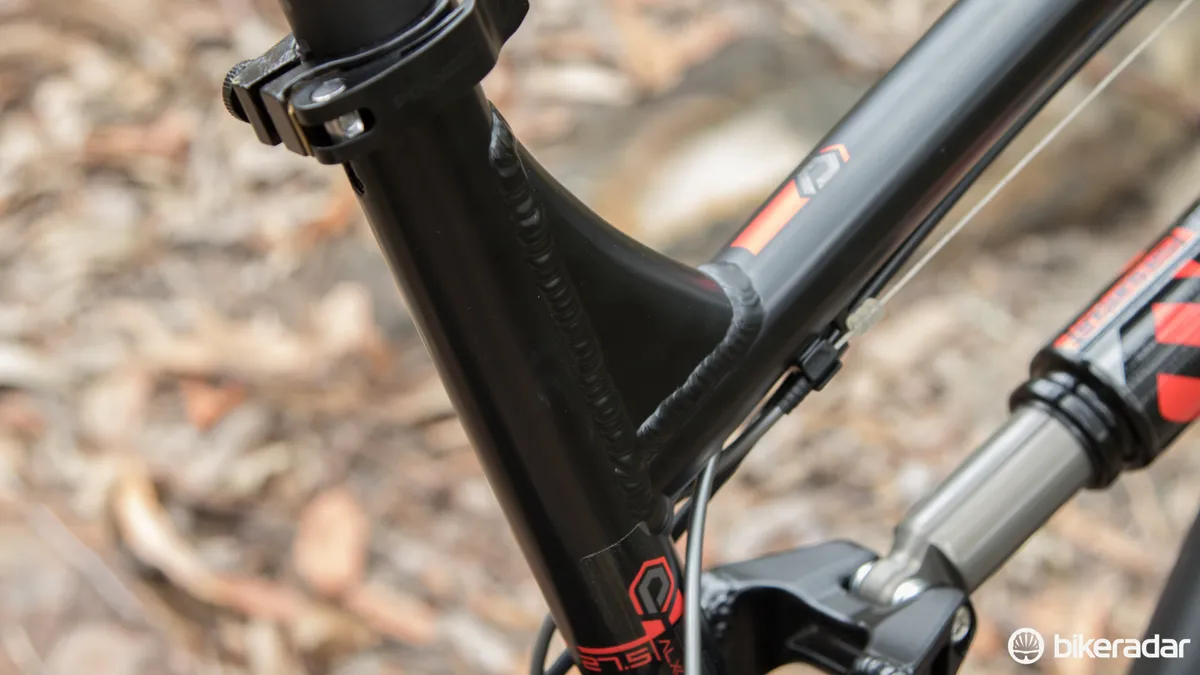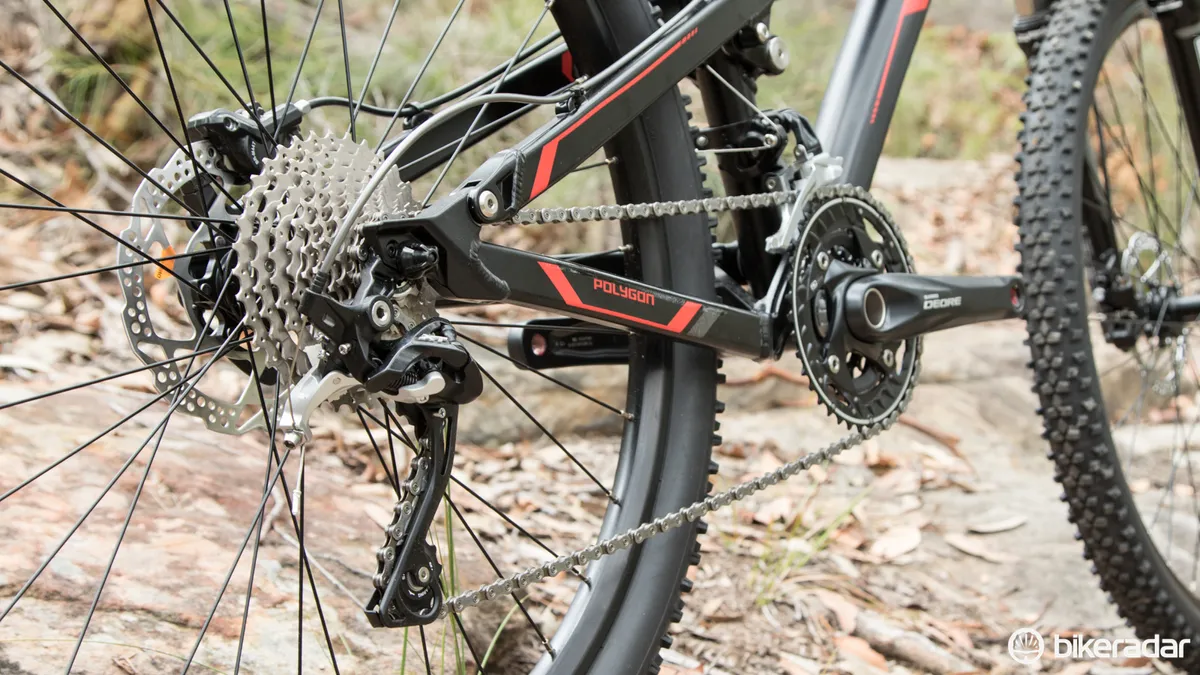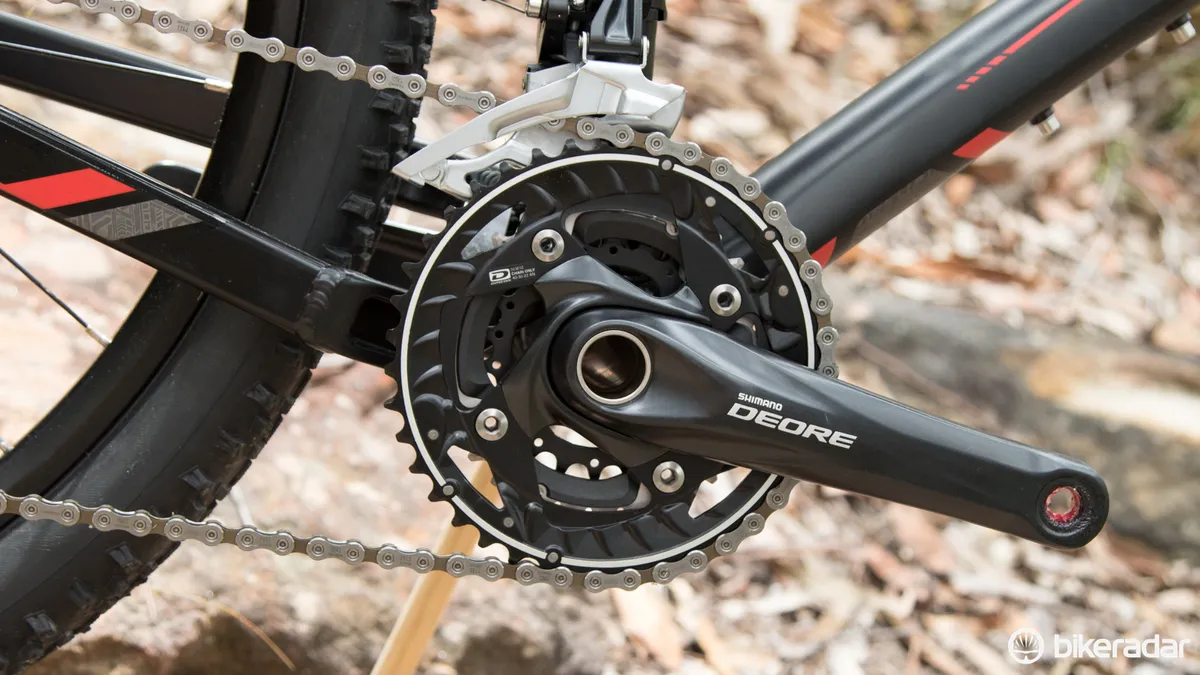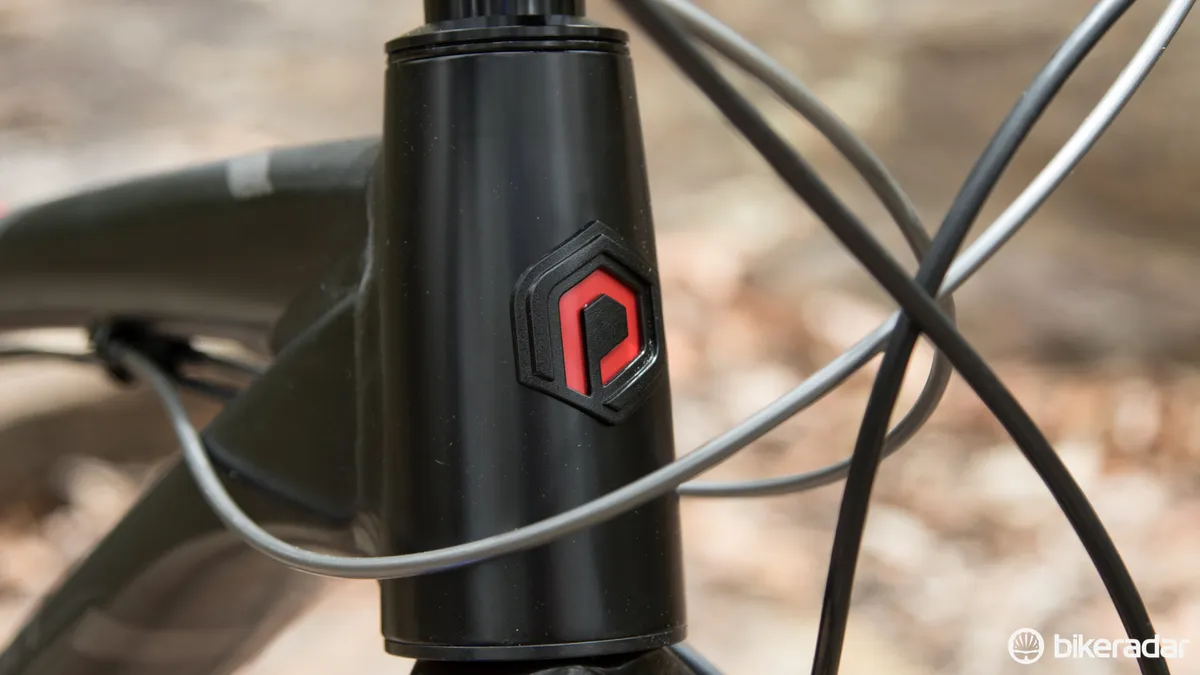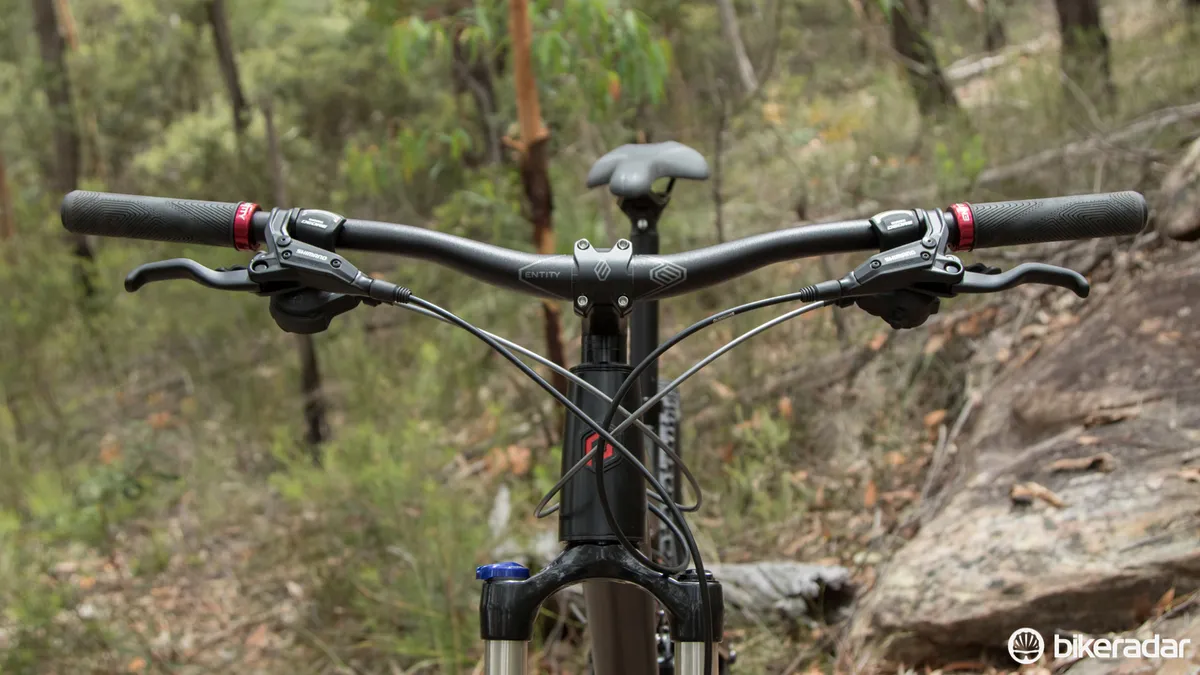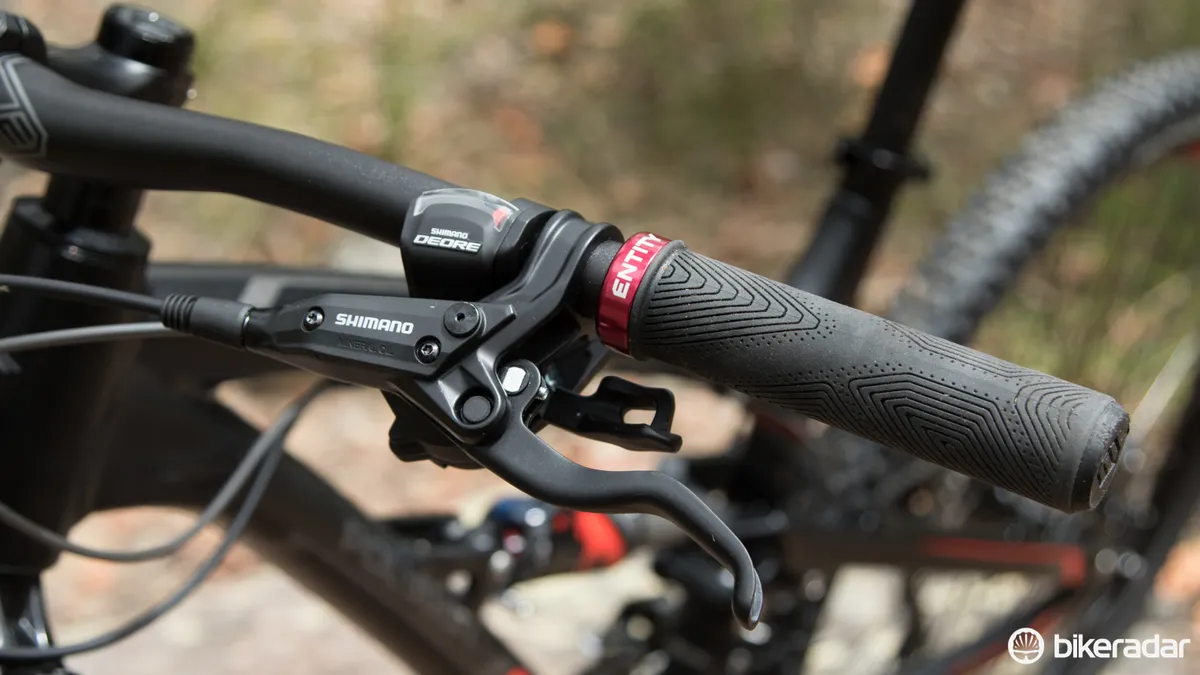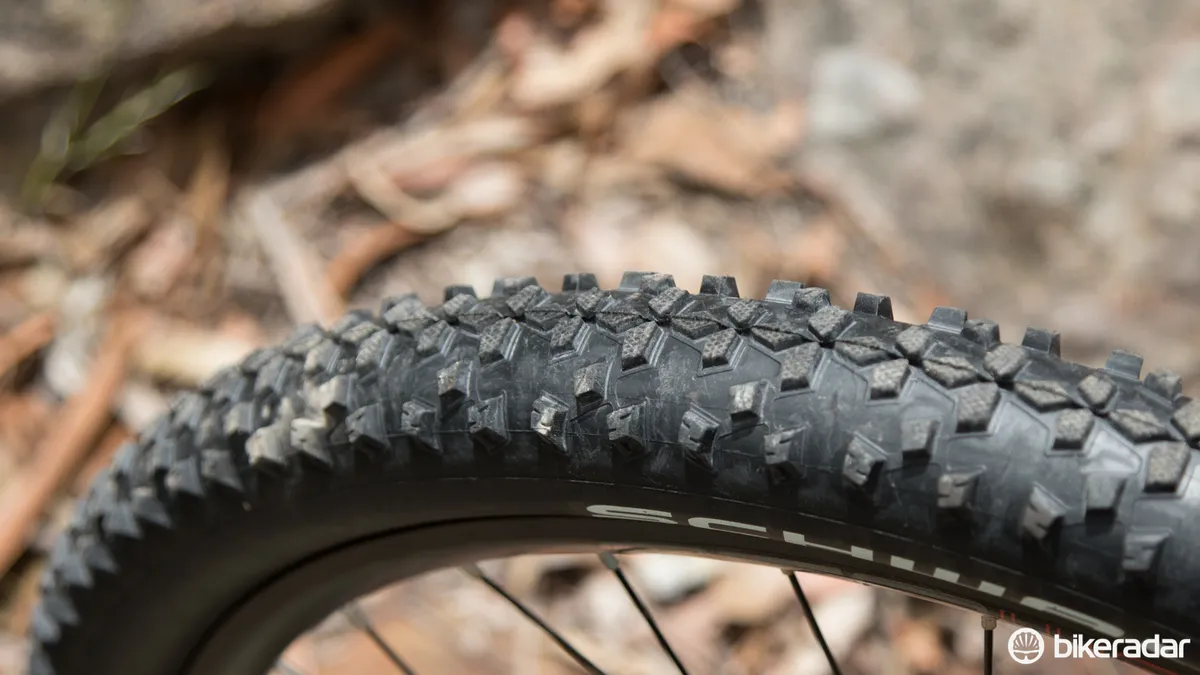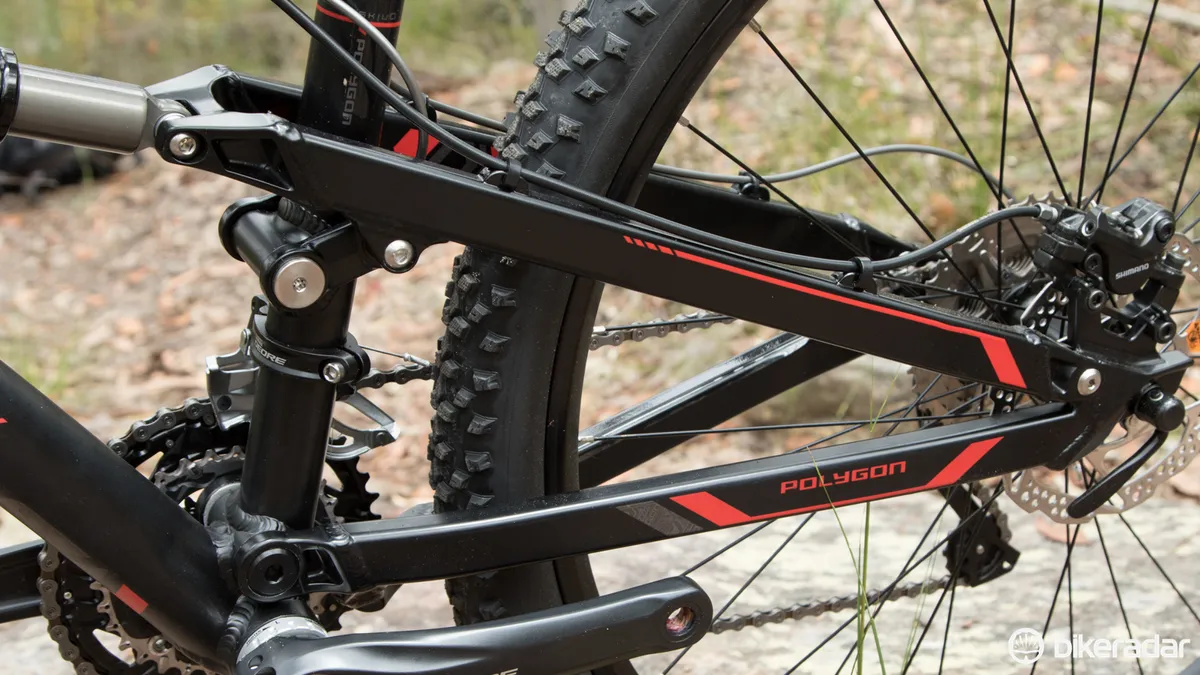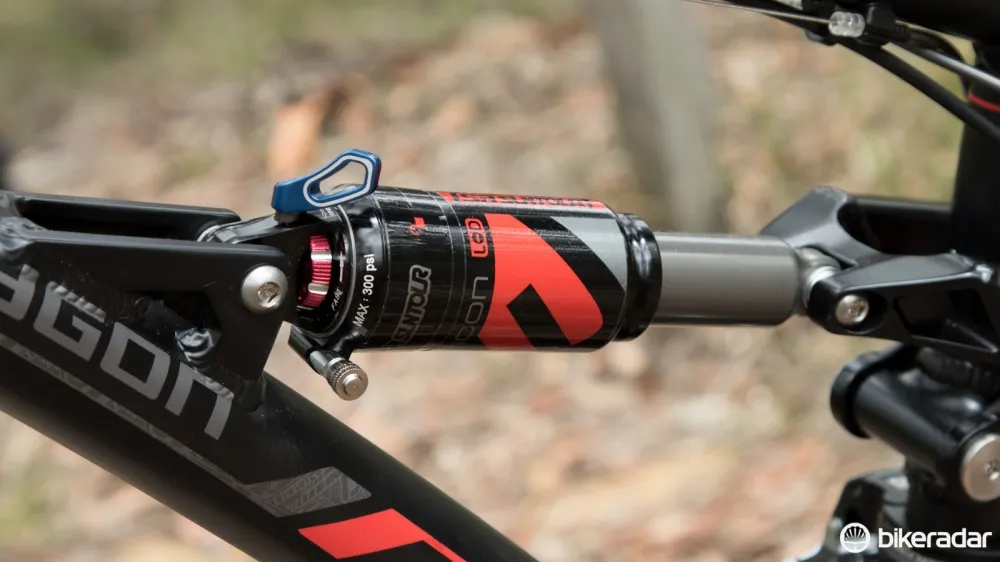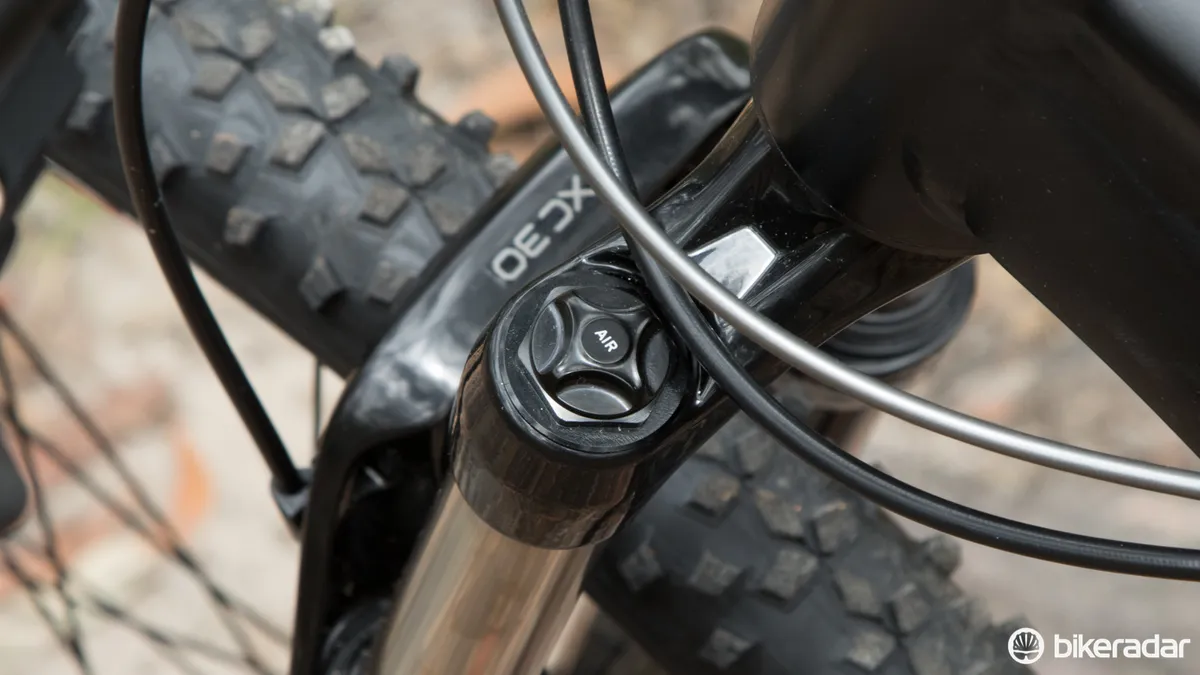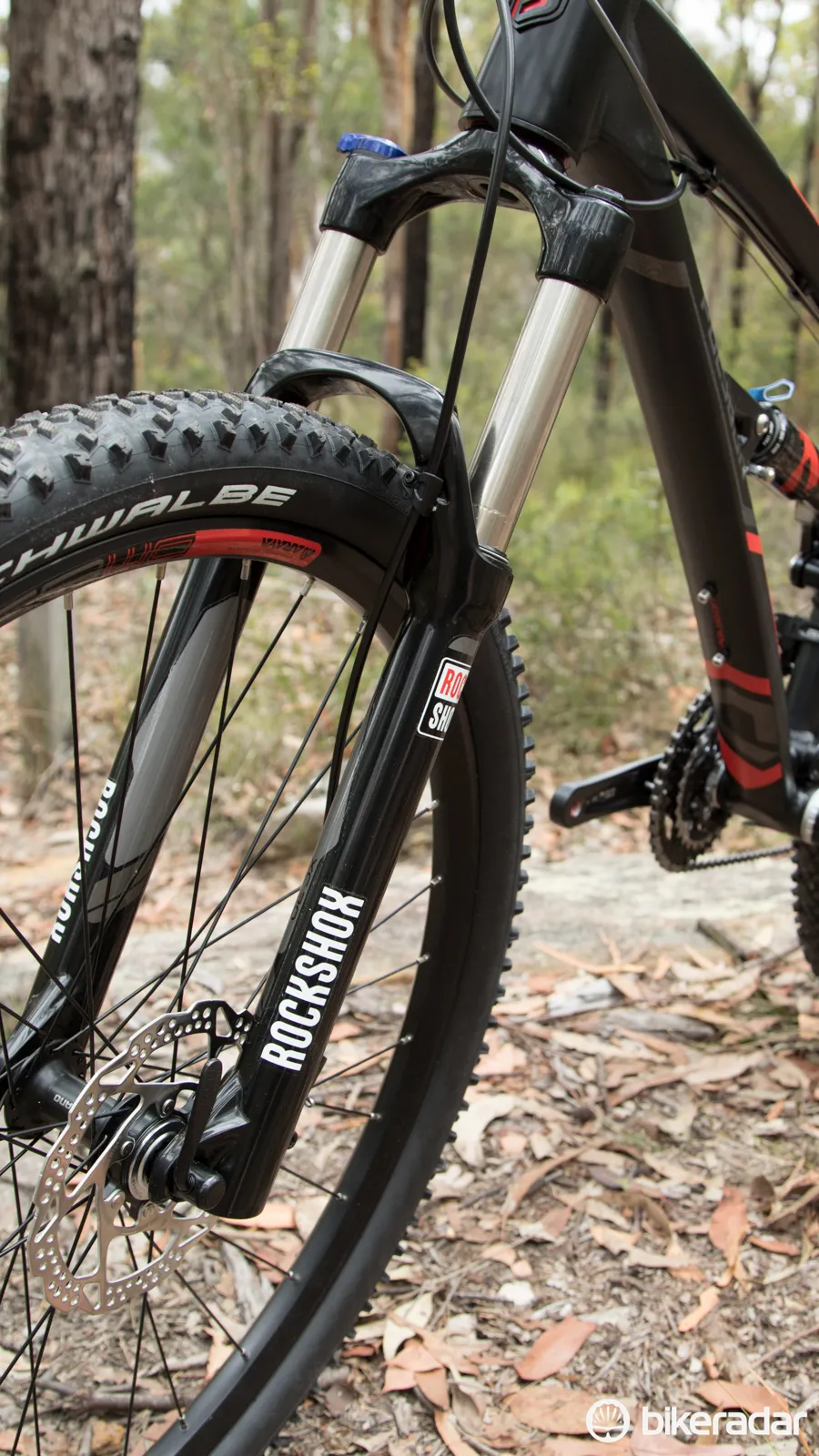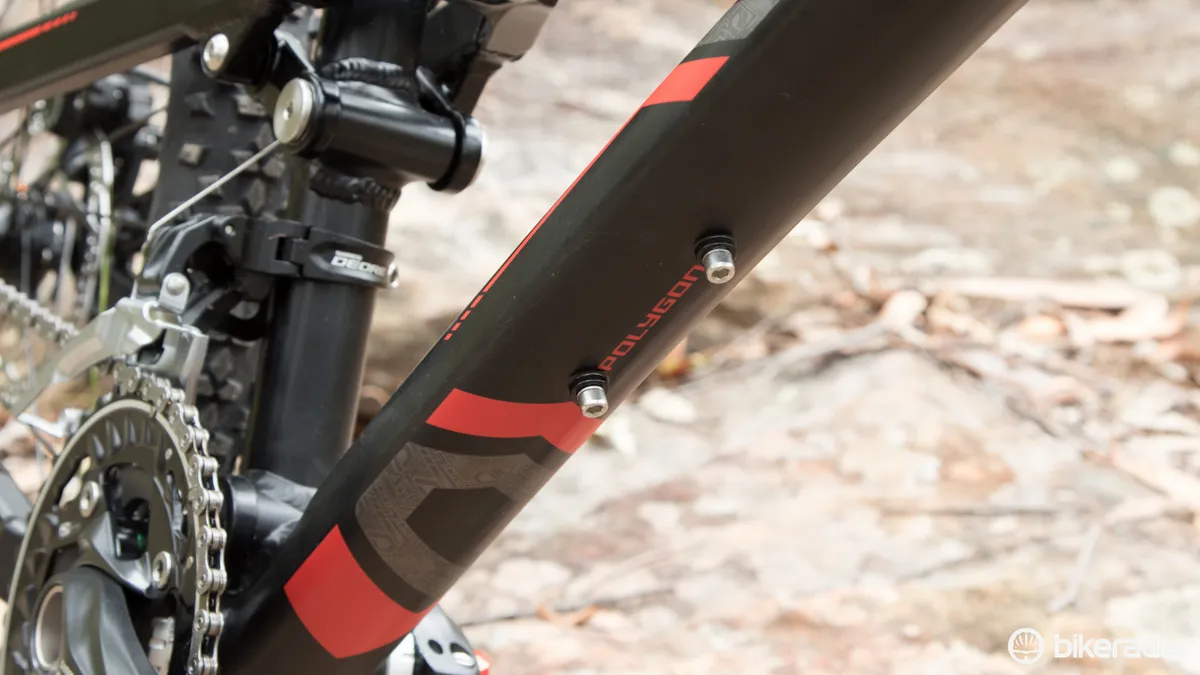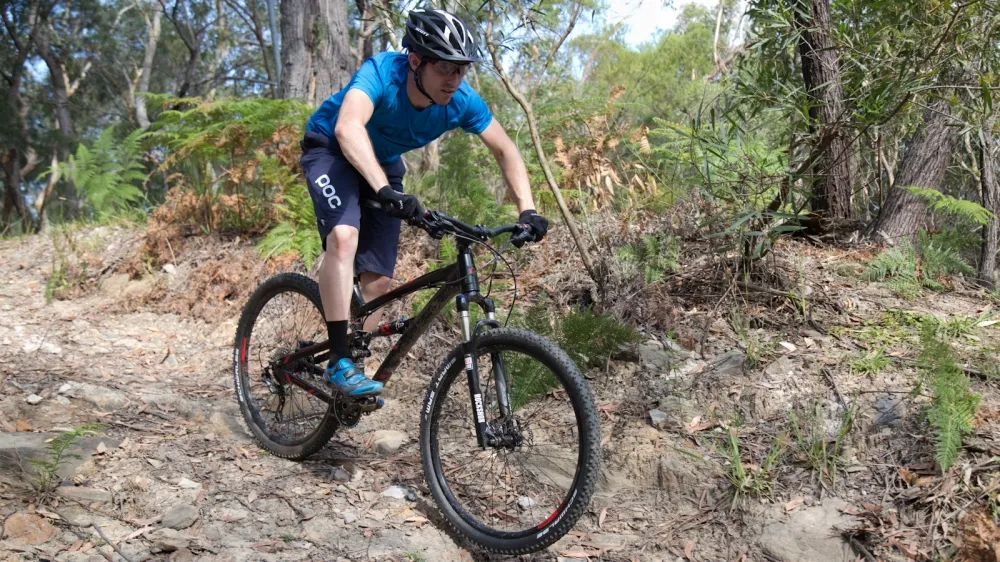Polygon has quickly developed and refined its mountain bike line-up in just a matter of years, no doubt helped by the sponsoring of a world-cup gravity racing team. Replacing the Recon D4.0 for 2015, the Siskiu D7.0 offers plenty of trickle down technology at a price that’s traditionally kept for hardtails only. It’s all made possible through the Indonesian manufacturer's continually expanding consumer-direct business model.
Featuring 120mm of suspension travel and 650b (aka 27.5in) wheels, the Siskiu is in touch with modern standards for a trailworthy cross-country ride. The alloy linkage-driven single-pivot suspension frame design is a proven classic and provides for a respectable balance of performance, weight and reliability – all at an astoundingly low price.
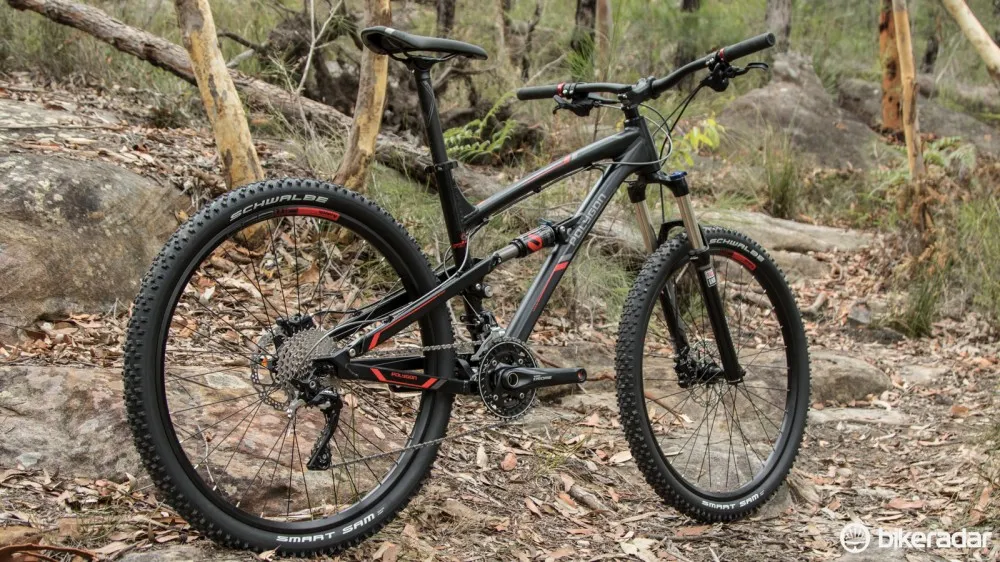
Highs: Amazing value, quality components, solid construction, fun and flickable ride
Lows: Weight, short and upright for fast cross-country riding, harsh rear suspension, limited size range
Buy if: You’re wanting to get started in casual mountain biking and happy to buy online (or from a limited dealer network)
Ride and handling: familiar geometry, impressive ability
Geometry is something can that so quickly make or break a bike. However, within the first few pedal strokes, the Siskiu’s familiar angles made us feel right at home, providing a ride and handling that was unexpected at this price.
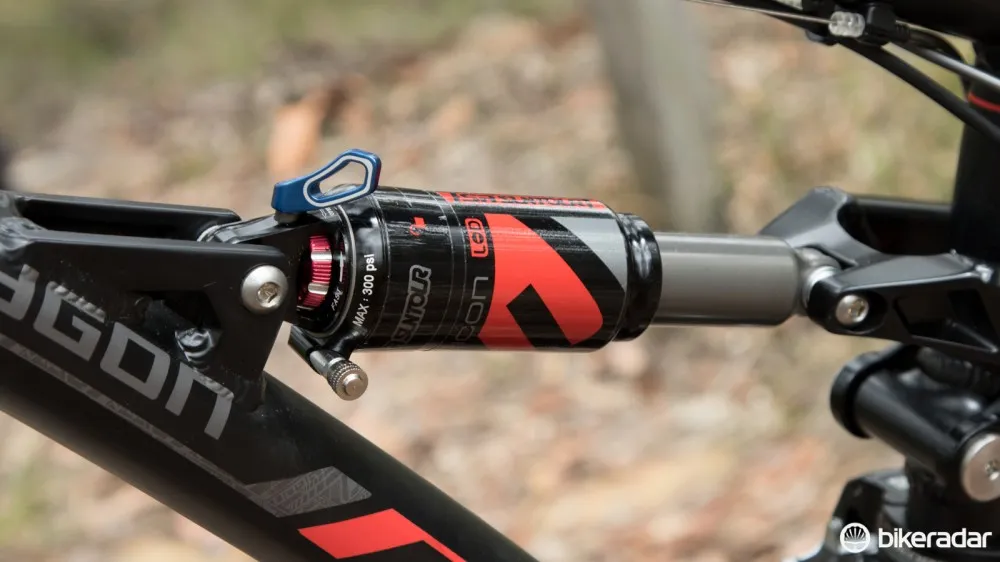
The shock can be fine tuned through air pressure adjustment, while the red knob controls the rebound speed
Controlled by a SR Suntour Epicon LO-R rear shock, the suspension out back does a respectable job at keeping the rear wheel in traction with the ground. Large hits are soaked up comfortably, with the shock's air preload and rebound control enabling you to dial in the expected function.
Pedaling is kept reasonably efficient – there's some noticeable suspension movement under power, but no worse than on similar designs. The downside to this efficiency is that small and unexpected square edge bumps are met with an unforgiving spike because of the shock’s initial compression platform, but there's certainly no comparison to the rigid ride of a hard tail.
Like the rear shock, the RockShox XC30 TK front fork features air preload and rebound control that lets you set how the fork behaves for your weight. This is no bike to plough through terrain with – the fork’s quick release axle and 30mm diameter stanchions soon become overwhelmed and pushed off line – but given its damping performance and the price point, you're unlikely to find a better option.
Hit the tarmac or a smooth bike path and suspension lockouts front and rear await. These do a decent job in stiffening the suspension to create a far more responsive ride under power – just be sure to switch them off once the trail reappears.
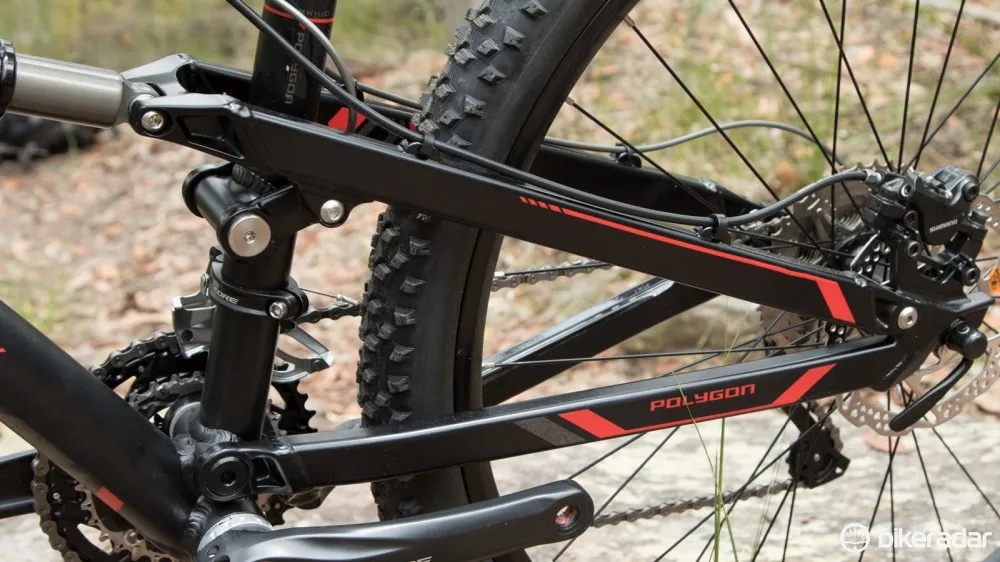
There's a little flex out back, but hardly enough to spoil the ride
Where the front fork has a little twist in it, so does the rear end. Forcefully pushing the rear wheel into corners revealed some give, with the quick release rear wheel and split rocker links not measuring up to more expensive designs, but not enough to push the Polygon down in our estimation.
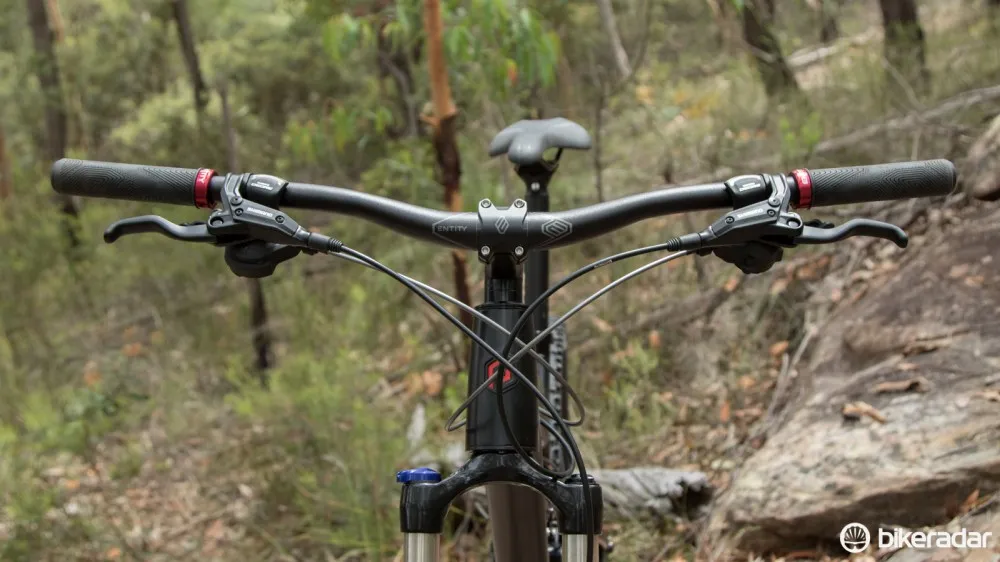
The Siskiu D7.0 is short and upright in its fit
The current trend in mountain biking is to use a short stem and wide handlebars to deliver nimble yet stable handling. At 80mm the Siskiu's stem is mid-length while the bars are fairly broad at 740mm, but the short top tube length makes for a short reach to the handlebar. It’s an upright ride and the relaxed position will suit newer riders, offering comfort and a rear wheel bias that helps prevent feelings of head over heels. Throw in a sensibly short rear end and you've got a machine that loves to wheelie and hop about.
The negative to this relaxed position is seen on steep climbs, where a more aggressive stance would enable a greater number of muscle groups to be recruited into the effort. In such situations the front wheel also wanders, as you fight with the handlebars to go where you want to. This ride characteristic is expected of burlier and slacker 140mm+ travel rides; less so on bikes of this travel.
Also, while it's a comfortable experience if you're of average stature, with just three sizes on offer the Siskiu won’t fit if you're on the edges of the height bell-curve.
Build: consumer-direct model means extra work
It’s important to keep in mind that Polygon is sold consumer-direct in Australia – it would otherwise be impossible to sell this much bike at the given price tag. With this, it’s not for everyone – and purchasers will need to have some experience with tools, or pay the going rates at local bike stores for services that would usually be included with a bike's price.
That said, straight from the box the Siskiu is likely to be delivered in, the build quality is impressively high. Polygon's Australian retailer, Bicycles Online, checks over every bike before sending it out. (We've previously compared the top consumer-direct brands in Australia to see how they measure up.)
After installing some pedals, the seatpost (both pre-greased), handlebars and the front wheel, the bike should be ready to go. However, the saddle on our sample was loose and the air suspension required fine-tuning to get the most from it.
This latter point is a big one, and although BicyclesOnline will set up Australian customers' suspension to a specified weight at the time of purchase and supply the tools required to build the bike (including a pre-set torque wrench!), no air pump or sag-measuring O-rings for the suspension are included.
Frame and equipment: respectable brand flash for the cash
The Siskiu’s frame is high quality and shows some nice details that are borderline shocking given the bike’s price. The main tubes are heavily hydroformed (they're shaped by liquid under immense pressure), while the box section seat and chainstays out back are offset asymmetrically to best withstand the different forces from left to right.
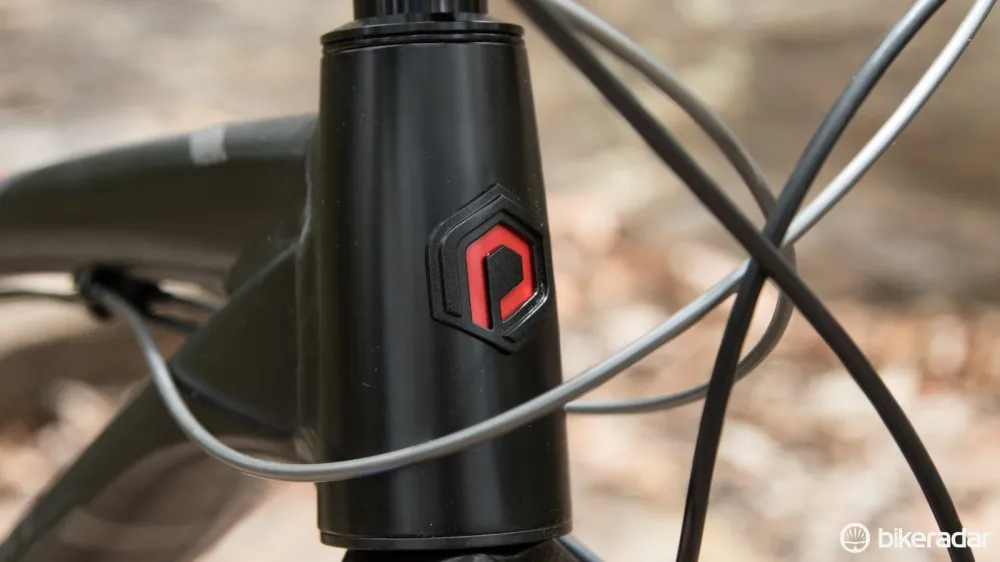
Although the stock fork doesn't need one, the tapered head tube is a quality addition
The frame’s quick release axles and standard threaded bottom bracket may not be latest or greatest, but they are proven and user-friendly. A tapered head tube, which the stock RockShox’s straight 1 1/8in steerer doesn’t demand, is featured in case of a future fork upgrade. And while the external cable routing does rub the seat tube, clear protector stickers are already in place to prevent paint damage.
As mentioned previously, the upper rocker linkage is two separate pieces; compared with a one-piece setup this means a little unwanted flex and some extra side-loads on the pivot bearings, something that's likely to have an effect on the long-term durability of the sealed cartridge bearings used.
While it's a non-issue for those that prefer hydration packs, we love to carry a water bottle with us for shorter rides, and the Siskiu’s shock position makes this impossible. Polygon has supplied a cage mount underneath the down tube, but this is a position that’s hard to reach and inevitably leads to your bottle getting covered in the trail’s mess.
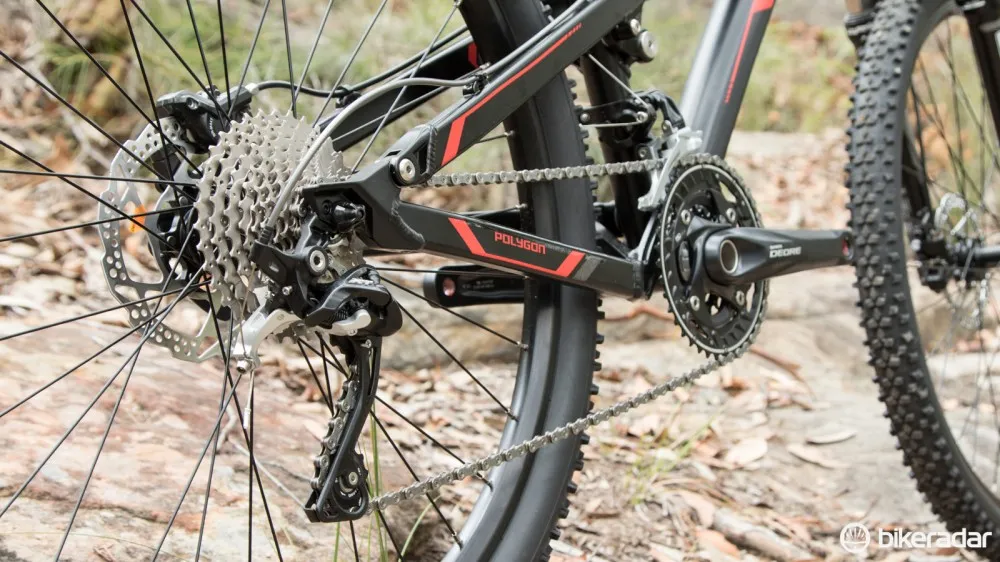
We had no issues with this trailworthy transmission – although a clutch-equipped derailleur would be preferable
The Shimano Deore/XT 3x10 drivetrain is all quality and shifts accurately with a light touch at the levers. The Deore cranks and shifters are higher-grade than you'd expect at this price and should prove durable, although at 170mm the former are shorter than the industry norm of 175mm.
The rear derailleur is Shimano XT. That's great on paper, but we’d prefer to see a clutch-equipped model – even if this meant dropping to SLX or Deore – to better support chain retention and reduce slap.
More positively, the rear derailleur is direct mounted, meaning that a traditionally weak hanger is replaced with a stiffer and stronger integrated solution.
The basic Shimano brakes offer an easily controlled lever feel and solid reliability. These brakes lack the power and bite of more expensive models, so a larger 180mm rotor on the front wheel would have been a useful addition for heavier and more aggressive riders, but we applaud Polygon for using a high-quality rotor, which allows for upgrading to more expensive sintered pads later on.
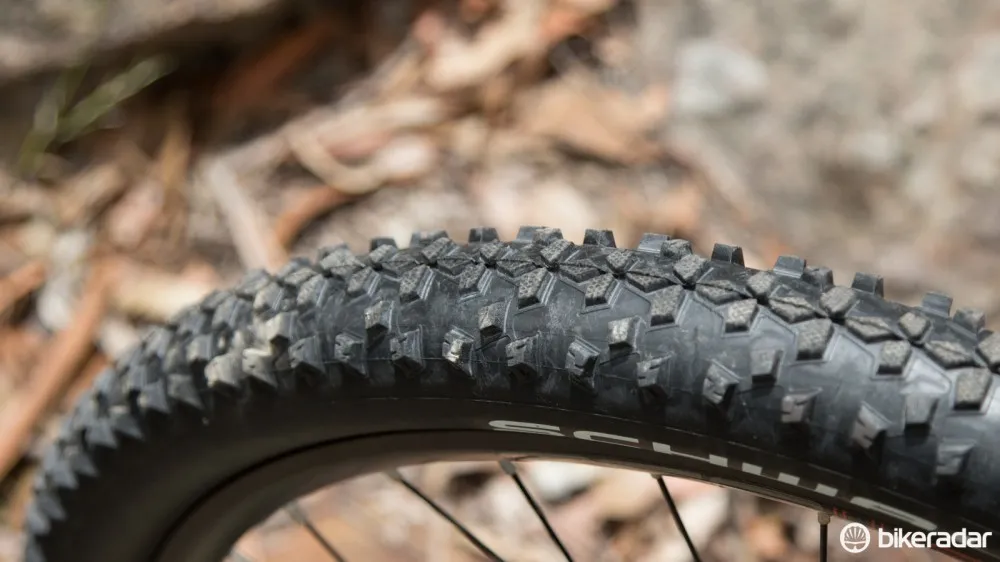
Schwalbe Smart Sams do the job, but lack the puncture protection and width of those featured on more expensive rides
Basic Schwalbe Smart Sam wire-bead treads grip well in a range of conditions but, as we quickly found out, offer little sidewall protection from pinch flats. The 2.1in width is a little narrow, and a broader 2.25in version would aid in flat protection and small bump compliance where the rear suspension falters.
At just over 26mm (external), the Araya rims help to widen those relatively slim Schwalbes. Combined with the tightly sprung spokes and basic Shimano hubs, these wheels are suitably stiff and durable, though fairly heavy.
As well as helping to trim any overgrown scrub you may be riding through, the 740mm wide riser handlebars do a good job of making up for the short cockpit reach and aiding with stability. At your rear sits a sturdy twin bolt seatpost holding a fairly basic saddle that, while reasonably comfortable, may be too narrow for some.
Despite some obvious shortcomings, though, the Siskiu has left us rethinking the entry price for dual suspension bikes. While a similarly priced hardtail will be lighter and is likely to offer a better fork, the Polygon doesn’t give ground on much else.
If you’re looking to get started on the trails without racing ambitions and know your way around an Allen key, this is a convincing, capable and rather playful option.
